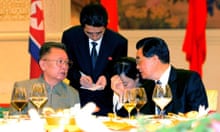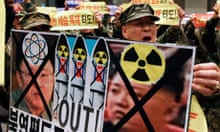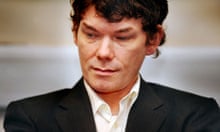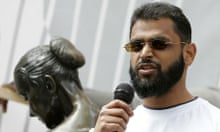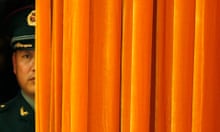The US secretary of state, Hillary Clinton, today gave the administration's first public reaction to the leaking of thousands of confidential diplomatic documents, describing it as an attack not only on the US but the international community.
In a lengthy statement expressing US regret over the leaks that have thrown the diplomatic world into disarray and created widespread embarrassment for Washington, Clinton said they put at risk the lives of many people in oppressive societies who had spoken to American diplomats.
Barack Obama also criticised the leak. His White House press secretary, Robert Gibbs, said it was a criminal act and the president "is, and it is an understatement, not pleased with this information becoming public".
The US condemnation was mainly echoed by foreign ministries round the world, at least in public, with some shrugging aside the release.
The White House, Clinton and the Pentagon announced that a review was under way to tighten up security to prevent a future breach. The number of people with access to classified information is expected to be reduced.
Clinton told reporters at the US state department: "It is an attack on the international community, the alliances and partnerships, the conversations and negotiations, that safeguard global security and advance economic prosperity."
The US had been working hard to deal with the global recession and the threat posed by terrorists, Clinton said; the leaks undermined this work.
"There is nothing laudable about endangering innocent people, and there is nothing brave about sabotaging peaceful relations between nations on which our common security depends," she said.
While she said she would not comment directly on the cables or their substance, she said that the government would take "aggressive steps" to hold responsible those who "stole" them.
"The United States deeply regrets the disclosure of any information that was intended to be confidential, including private discussions between counterparts or our diplomats' personal assessments and observations," she told reporters.
She was speaking before leaving on a trip to central Asia, a journey made more difficult than usual by the revelations so far and the potential for more to come.
Although she started the press conference with a smile, Clinton looked tired after days talking to counterparts around the world, warning them of what might be coming and trying to soothe hurt feelings.
She predicted: "I am confident that the partnerships that the Obama administration has worked so hard to build will withstand these challenges."
Clinton said ambassadors needed to be candid but "our official foreign policy is not set through these messages, but here in Washington". And she initially refused to talk about individual cables, but, in response to a question about Iran, she said they showed that Tehran's neighbours were concerned about the threat posed by the prospect of Iran becoming a nuclear state.
Gibbs, at a White House briefing, called the leaks a crime.
George Bush said the disclosures would make it hard for the US to keep the trust of foreign leaders. In an interview with Facebook he said: "When you've a conversation with a foreign leader and it ends up in a newspaper, they don't like it; and I didn't like it. A lot of these relationships depend on trust." However Sarah Palin seemed to blame the White House for the leaks, writing on her Facebook page: "Why was he [WikiLeaks founder Julian Assange] not pursued with the same urgency we pursue al-Qaida and Taliban leaders?"
The comments from Clinton and the White House came on a day in which world leaders digested the disclosures. In Afghanistan, whose president, Hamid Karzai, was described in the cables as "extremely weak", spokesman Waheed Omer said that it would not affect the relationship with the US.
"There is not much in the documents to surprise us and we don't see anything substantive that will strain our relationship, but there is more still to come," he said.
Russia's foreign minister, Sergei Lavrov, on a visit to India, hoped comments about the prime minister, Vladimir Putin – he was described as an "alpha dog" and Batman to President Dmitry Medvedev's Robin – would not damage relations.
"It's entertaining reading, of course," Lavrov said, according to the Itar-Tass agency. "But in practice we prefer to be guided by the concrete matters of partners. We will continue to adhere to precisely that approach in the future."
The Italian PM, Silvio Berlusconi, at first laughed off the revelations about his personal life, but later sounded irritable, saying he had no interest in the opinions of "third or fourth rank" diplomats.
A French foreign ministry spokesman called WikiLeaks "irresponsible" and said it could harm international relations.
Pakistan's foreign ministry spokesman, Abdul Basit, said: "We consider the extremely negative reports carried on Pakistan-Saudi relations attributed to WikiLeaks as misleading and contrary to facts."
Iraq's foreign minister, Hoshyar Zebari, called the release of the diplomatic cables "damaging" and "the timing terrible". The cables had information about alleged Iranian pressure and manipulation during Iraq's election in March.
The Israeli prime minister, Binyamin Netanyahu, said Israel had not been harmed by any of the disclosures. Tibetans living in India, meanwhile, criticised the Chinese government as being unethical. According to one of the US embassy cables, the Chinese government hacked into the computers of the Tibetan spiritual leader, the Dalai Lama.


